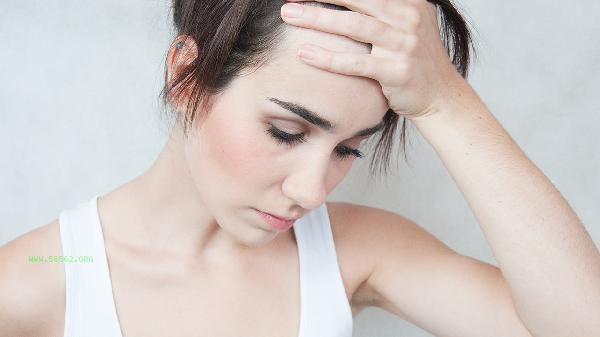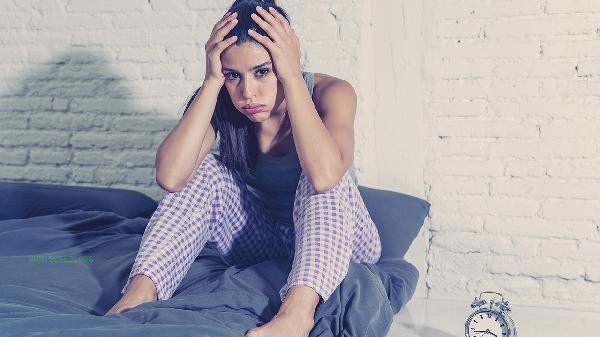The common symptoms of menopause in 52 year old women mainly include hot flashes, night sweats, menstrual disorders, emotional fluctuations, sleep disorders, osteoporosis, etc. Menopause is a physiological stage in which female ovarian function gradually declines, and the severity of symptoms varies from person to person.

1. Hot flashes and night sweats
Hot flashes are characterized by sudden facial and neck fever that spreads throughout the body, accompanied by skin redness and excessive sweating. When they occur at night, they are called night sweats. The frequency of attacks ranges from several times a day to dozens of times, each lasting for several minutes, which may affect daily life and work efficiency. Hot flashes and fluctuations in estrogen levels in the body are related to the dysfunction of hypothalamic thermoregulation.
2. Menstrual disorders
Menstrual cycle is shortened or prolonged, with varying menstrual flow, and some women may experience functional uterine bleeding. As ovarian function continues to decline, amenorrhea eventually occurs. Menstrual changes are one of the earliest symptoms of menopause, usually lasting 1-3 years. It is recommended to undergo regular gynecological examinations to rule out organic diseases.
3. Emotional fluctuations
are prone to emotional changes such as anxiety, depression, irritability, lack of concentration, and in severe cases, memory loss may occur. Changes in hormone levels directly affect neurotransmitter balance, while symptoms such as sleep disorders and hot flashes can exacerbate emotional problems. Maintaining a regular schedule and moderate socializing can help alleviate symptoms.

4. Sleep disorders
are characterized by difficulty falling asleep, shallow sleep, early awakening, or frequent nighttime awakenings, which may be related to hot flashes and night sweats. Long term sleep deprivation can exacerbate fatigue and emotional problems. It is recommended to maintain a suitable temperature in the bedroom, avoid drinking coffee and strong tea before bedtime, and consult a doctor for professional evaluation if necessary.
5. Osteoporosis
Estrogen deficiency accelerates bone loss, with no obvious symptoms in the early stages. As the condition progresses, there may be lower back pain, reduced height, and in severe cases, fractures. It is recommended to increase calcium and vitamin D intake, engage in moderate weight-bearing exercise, regularly monitor bone density, and if necessary, undergo medication treatment under the guidance of a doctor. Menopausal women should pay attention to maintaining a balanced diet, increasing their intake of soy products, dark vegetables, and dairy products in moderation, and supplementing with high-quality protein and calcium. Engaging in 3-5 moderate intensity exercises such as brisk walking, swimming, or yoga per week can help improve cardiovascular health and maintain bone density. Establish regular sleep habits to avoid staying up late and overexertion. When symptoms seriously affect quality of life, timely medical evaluation should be sought. Doctors may recommend hormone replacement therapy or other symptomatic treatment plans based on specific circumstances. Regular gynecological examinations, breast examinations, and bone density testing can help detect and address related issues early.





Comments (0)
Leave a Comment
No comments yet
Be the first to share your thoughts!